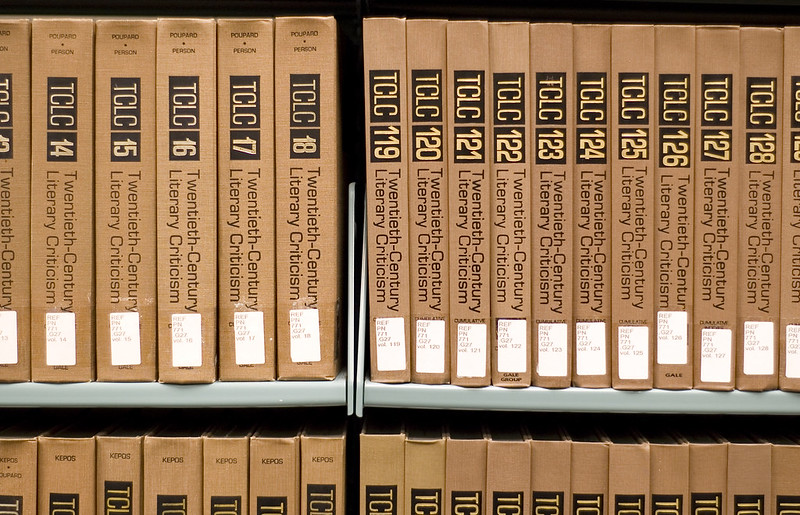Periodisation is the act of dividing literature into eras like Romanticism, Modernism, or Postmodernism – neat, bounded categories based on unifying characteristics, themes, or historical shifts. It is how we order the chaos of literary history. But what happens when the chaos no longer submits to order? When literature refuses the boundaries we try to place on it? I doubt anyone knows what period we’re in now and here lies a crucial point.
Today’s literary landscape feels like an open field rather than a walled garden. We trespass mythic boundaries, slipping between grass verges and across stylistic and ideological thresholds. We hang in a liminal space – between the softness inherited from post-1960s idealism and Gen Z’s digital-era defiance. And yet, in an age of self-publishing, algorithms, and Twitter threads that read like flash fiction, how can we honestly claim to define this moment in literature by any single unifying trait?
To be a writer or reader today is to exist in a space that actively resists classification. Our present increasingly disavows binaries in gender, sexuality, and belief systems. Why should literature remain shackled to essentialising periodisation? The act of periodising demands the rigid structure we’ve been taught to interrogate. Literature has long been a space of ambiguity, of multiplicity. It is intertextual by nature, always pointing to something beyond itself. When Joan Didion titled her essay collection Slouching Towards Bethlehem, she invoked Yeats’ The Second Coming. But what did she mean by it? Was it just a poetic allusion? Or a cry of yearning? Or perhaps it is a coded invocation of cultural collapse? The beauty lies in the not-knowing.
If this moment needs a name, it might be ‘anti-period’. It is a time not defined by invention but by un-invention. It is not an arrival at something new but a shedding of what no longer fits. The lingering influence of Romanticism, with its grandeur and ornamentation, hasn’t been replaced by a distinct new mode but by a rejection of form itself.
We are no longer tracing the arc of Campbell’s The Hero’s Journey – this idea that a character (or writer) must leave the familiar, undergo a transformation, and then return home no longer the same. We, and our characters, are not returning at all. Writers of this generation are like that gap year student who never comes home, stops replying to emails, shaves their head in Bali, and quietly evaporates into another life. The journey isn’t circular anymore – it’s porous, meandering, recursive, or without a destination.
The clean lines of the modernist structure have dissolved. Grammar is loosened. Punctuation is optional. Think of Sally Rooney, whose dialogue flows without quotation marks and evokes intimacy and immediacy. Sentences stretch or shatter, as in the work of Claudia Rankine or Jenny Offill, where fragments mirror fractured psyches. It could be rebellion. Or laziness. Or something more profound – a quiet resistance, a refusal to be boxed in. Instantaneous fame, viral visibility, micro-narratives – these fragment the literary canon. The Instagram poets, the autofictionists, the substack essayists: each chip away at the idea of a singular voice or form. Perhaps fragmentation is the most honest form of literature we can offer.
Think of Toni Morrison, who famously resisted traditional chapter structures and narrative clarity. In Beloved, the refusal to use conventional formatting mirrored the distortion and dislocation of memory under the weight of slavery. It wasn’t just a stylistic choice – an act of deconstruction, a challenge to the Western, white literary tradition, and a reminder of older oral traditions where the story was fluid, shared, and evolving.
Even here in Oxford, where tradition looms large and norms feel carved in stone, there are undercurrents. Between Bodleian stacks and essay crises, students are quietly subverting inherited forms. Some stick closely to the classics; others remix them. Footnotes live beside fanfiction. Shakespeare shares desk space with Emily Henry. Despite modernism’s slow creep into our syllabi, there’s often resistance to naming the new. As though if we acknowledge it, we also have to dismantle what came before.
But do we need to periodise to understand? Or can we accept what Keats termed ‘negative capability’: the capacity to dwell in uncertainty and doubt without feeling any itch for fact and reason?
Keats’ concept, centuries old, feels radical now. In a world where information is instantly accessible and truth must be verified, dwelling in ambiguity is countercultural. But perhaps that’s precisely what literature demands of us: the courage not to know, to sense, to feel, to intuit meaning. We didn’t need to understand Jane Eyre to feel its resonance fully, nor did we need to dissect Jean Rhys’ Wide Sargasso Sea line by line to understand the echo and tension between them. We recognised something intuitively.
This may be what defines our era: an era of resistance to era. It is a moment when the label “post-postmodern” no longer satisfies, where the urge to categorise gives way to something looser, stranger, unstable, more human.
The paradox is that even as we resist periodisation, we continue to toy with it. Critics and academics will eventually try to name this age. They’ll trace its borders and identify its tropes. They’ll assign it a prefix. But the literature – fluid, fragmented, chaotic – may not care.
As Oxford students, we live with this tension daily. We write in the shadows of tradition yet are urged to innovate. We cite thinkers who rejected authority in essays judged by those who epitomise it. We are at once inheritors and rewriters of literary time. And perhaps that is the only unifying characteristic of now: the refusal to be unified.


